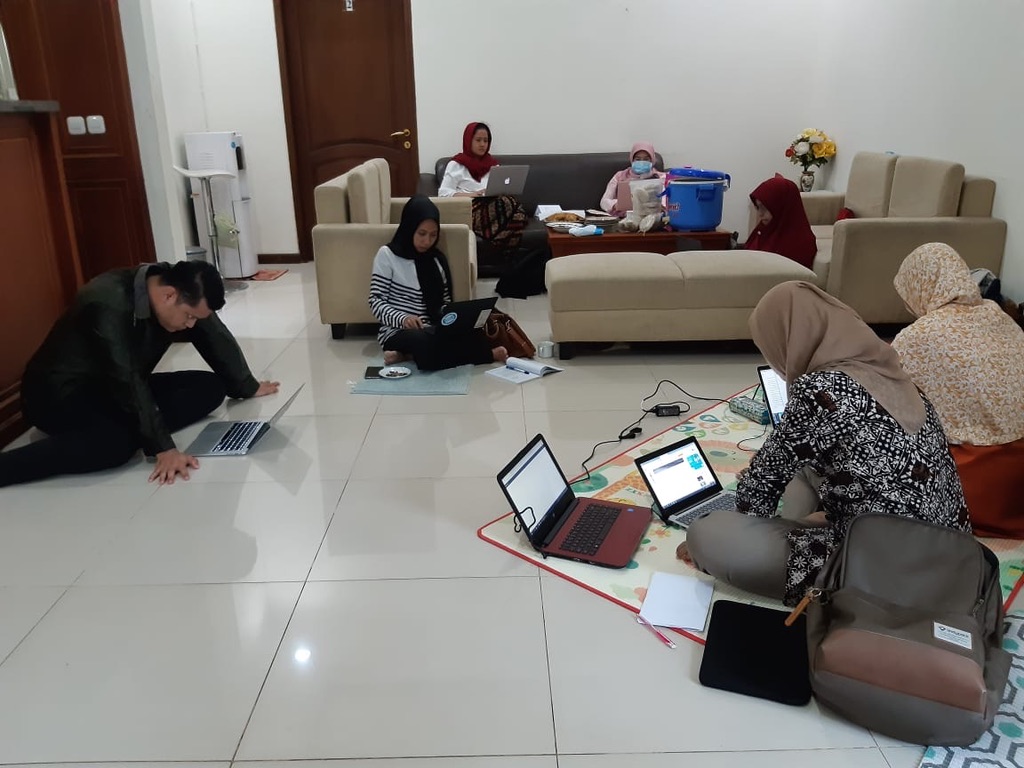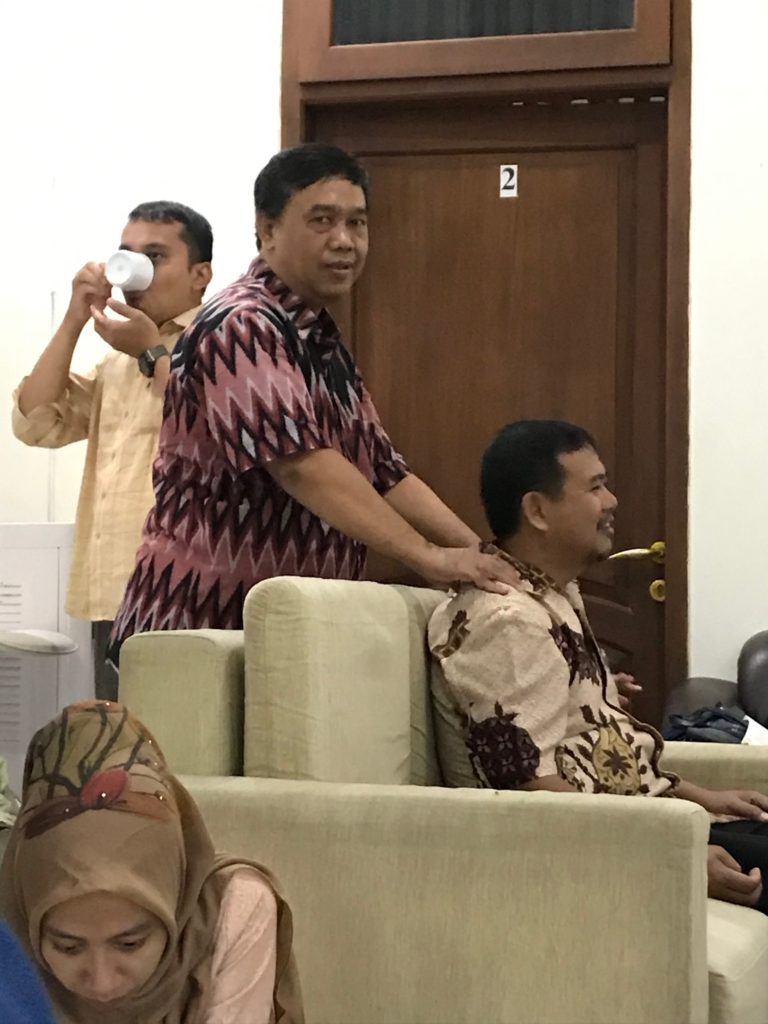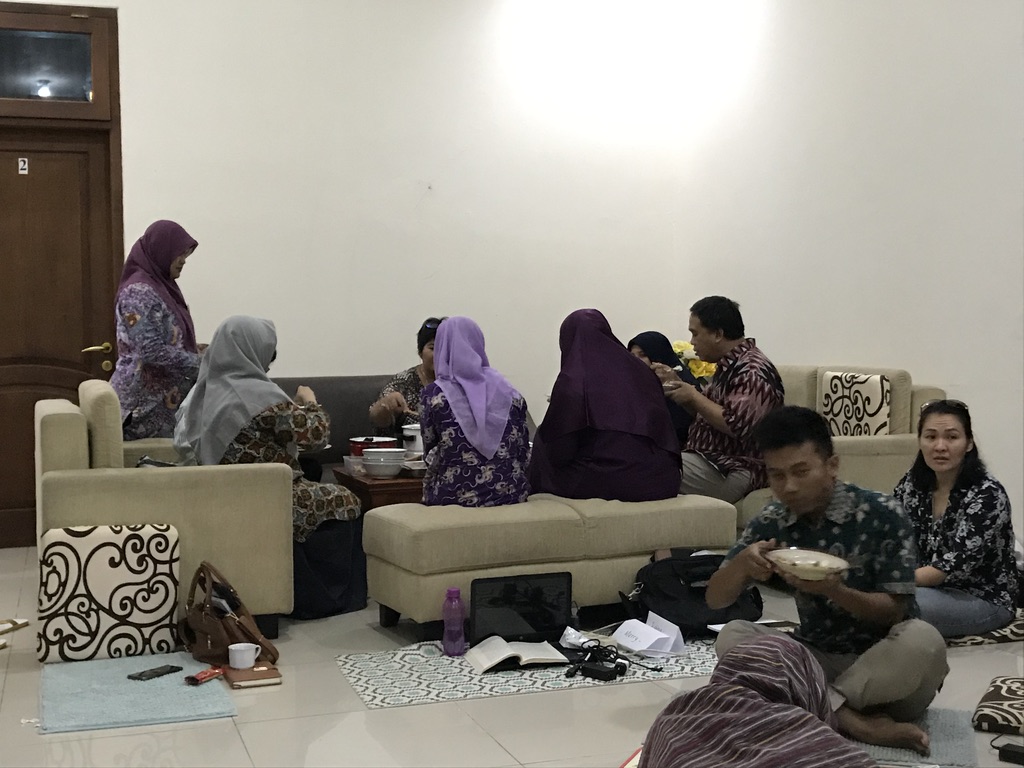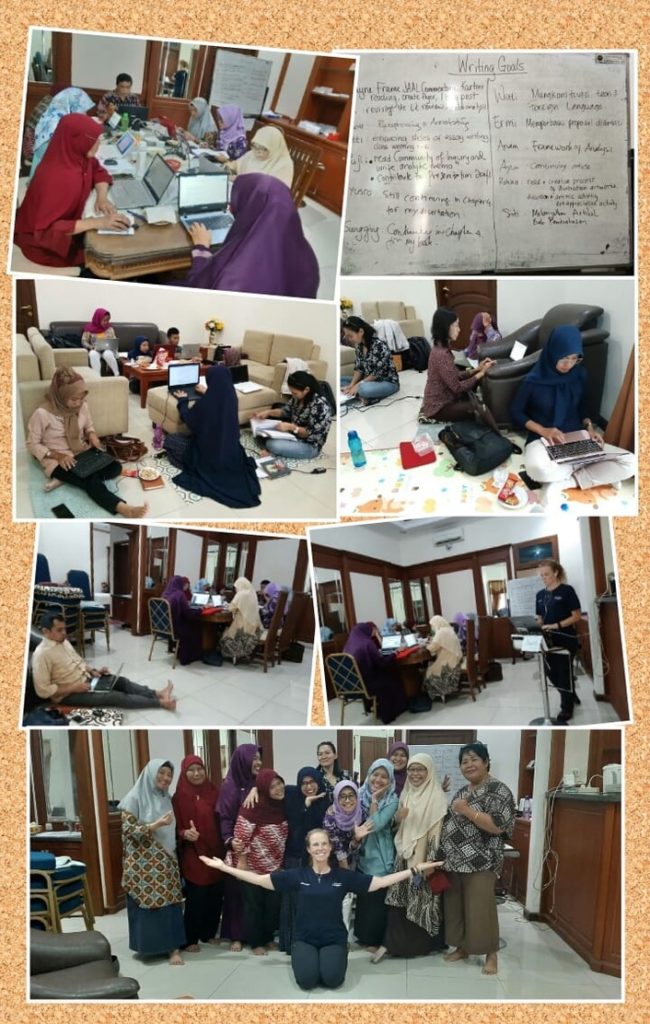Feeling Good about Our Fulbright Host Engagement Project

I write this entry in a meeting room at one of my favorite resort getaways in the Semarang region, Melva Balemong, during what is one of the final writing sessions of this second week of writing camp – what I have come to affectionately call “Writing Camp Dua.” As noted in the entry I wrote from the first time we did this back in December, Puji had the vision of what it might mean to the culture of academic writing and research if we brought the Writing Camp experience to her FBS colleagues. And, in this second iteration, we successfully expanded the program beyond her immediate English department colleagues to include writers like those pictured above: Atti Herawati (Teacher Educator at Universitas Pakuan and Ph.D. student at Atma Jaya, West Java) and Wati Istanti (Lecturer of Bahasa Indonesia for Foreigners at FBS UNNES). Our roster for this week of writing camp also included lecturers from many other departments in FBS, two other guests from West Java, and members of a committee charged with supporting the research, publication, and community service work in the department. We also got the Vice Dean in charge of Academic Affairs to clear a few hours of his busy schedule to join us mid-week.

In addition to expanding the reach of writing camp, I know we’ve made a difference here as I see writers settle in with such amazing focus and concentration as we get together. It’s been said to me that when Indonesians get together, their time is spent just on gossip and chatting, but I have seen something very different. Even better, some who participated in December have returned to Writing Camp with tales of how they kept up with their writing practice during the weeks between our sessions, finding good writing spaces in the new campus library building or meeting with each other in a coffee shop to help each other be productive. Every day we’re together someone tells me about how the shared energy of the space we construct together has helped them to accomplish a writing goal. During our last break, I got to give a high-five to a lecturer who just submitted his article. And, when facilities and department managers both tell me that they’re going to be designating spaces and times to continue the practice after I leave, I know that Puji was wise to make this a priority during my time here at UNNES.

For Indonesian faculty members, working in an academic community so pressured to publish in SCOPUS-indexed journals, receiving constant messages about not meeting productivity targets and being ridiculously busy with meetings, heavy course loads, and advising 50+ students each, it can be difficult to summon the energy to focus on one’s research and writing. That’s where Writing Camp can help – making the time to write a priority and having the department or university put resources behind the endeavor, adds writing to lecturers’ academic agendas in important ways. It brings writing to the workspace, rather than assuming writing to be a solitary endeavor that lecturers must do on their own time. The structure of setting achievable goals, then sitting down with other writers for timed sessions, with regular breaks for chatting and refueling, can create an environment that allows lecturers to overwrite negative experiences of academic writing stress and overwhelm with positive experiences of productivity and success. I very much look forward to bringing this model of Writing Camp to other faculties and universities during my return trips to the region.
Hear from the Writers
Ibu Christianti served as our videographer, capturing different writers’ experiences, reactions, and suggestions about Writing Camp. See for yourself what they appreciate about the model.
Javanese Language and Literature Department – UNNES
According to Ermi, “this is definitely beneficial to join this writing camp because here I train myself to write with discipline and focus, as a result there are many benefits that I get. So here I really concentrate on writing and thank God the results are visible.”
Department of Drama, Dance, and Music – UNNES
Slamet was very productive in Writing Camp, and offered this in his above reflection: “I feel remarkable benefits because in a short time, only five days, I can use this very limited time to write two articles and it has been completed, thanks to all friends in this writing camp. I was inspired by the method created by Jayne, namely the focus and the creation of extraordinary writing atmospheres. The methods help me, who is less skilled at writing, be motivated because in this writing, I can see friends who are all busy, all of which are silent, but productive in writing. My suggestion is that this activity should be carried out in several study programs, not only in English Department so that lecturer friends can also be more productive in writing, thank you.”
English Department – UNNES
English Department – Pakuan University, Bogor







1 thought on “Writing Camp Success”
Comments are closed.